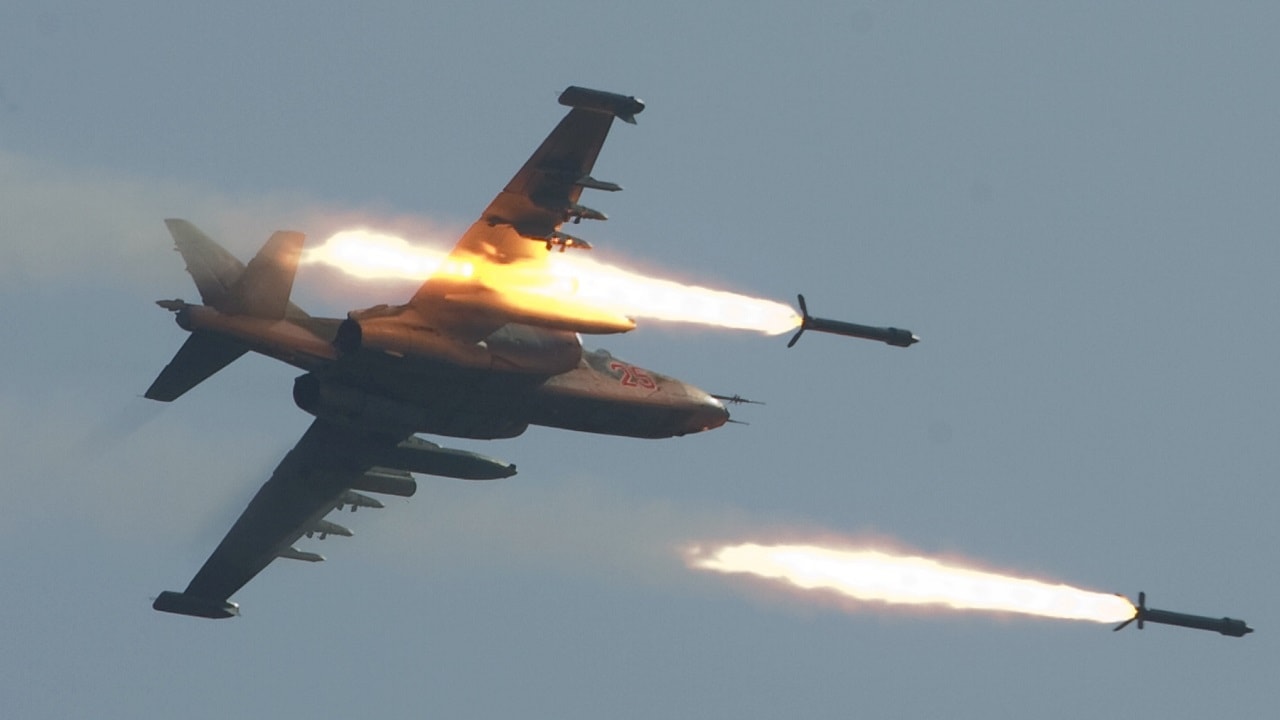We support our Publishers and Content Creators. You can view this story on their website by CLICKING HERE.
Donald Trump will soon be president. Washington policymakers are understandably skeptical that he will be able to fulfill his promise to end the Russo-Ukraine war in a day. Critics charge that he plans to simply pressure Kyiv to yield.
However, his hawkish advisers suggest otherwise. For instance, Keith Kellogg, chosen by Trump to special Ukraine war envoy, earlier described his plan for peace: “We tell the Ukrainians, ‘You’ve got to come to the table, and if you don’t come to the table, support from the United States will dry up’.” Then “you tell Putin, ‘He’s got to come to the table and if you don’t come to the table, then we’ll give Ukrainians everything they need to kill you in the field’.” Possible terms included a halt in the fighting, Russian control over territory that it occupied, NATO membership for Kyiv placed on hold for a decade or two, and security guarantees offered to Ukraine, backed by Western peacekeepers.
What Can Donald Trump Accomplish?
This is an awful approach that would likely fail while sacrificing fundamental American interests.
Washington would end up even more entangled in a conflict not its own. Kyiv would risk its army’s collapse while relying on another round of unenforceable allied promises of support. Moscow would feel continuing pressure to escalate for advantage. It also would deepen its reliance on China and increase its assault on US interests in the Middle East and Korea. The best result might be a European frozen conflict and global cold war persisting for years or even decades.
The Trump administration’s policy toward Ukraine should be directed at advancing American, not Ukrainian interests. For obvious and understandable reasons, Kyiv cares only about its own survival. In the conflict’s first year, Ukrainian President Volodymyr Zelensky attempted to lie the US into the war, blaming Russia for an errant Ukrainian missile that struck Poland. Zelensky recently turned his personal charm and PR machine onto the president-elect, attempting to persuade Trump that Washington should embrace Ukraine’s interests as America’s own.
However, they aren’t the same.
The Terrible Truth About Ukraine and America
The Russo-Ukraine war is terrible, but is a greater humanitarian than security concern for America. Ukraine has never been of serious geopolitical interest to the US. Not under Tsarist Russia. Not under the Soviet Union. And not under post-Soviet Russia. Vladimir Putin’s aggression came as a shock, but he has been in power for a quarter century without showing any interest in war against the US or Europe. Indeed, his famous address to the 2007 Munich Security conference suggested a policy that was logical, clinical, and measured. Putin’s aggression was unjustified, and the conflict is horrendous. Still, the US and Europeans often have routinely ignored worse, such as the lengthy war that consumed the Democratic Republic of Congo a couple of decades ago, killing, by one estimate, 5.4 million people. Washington and London also were notable in their support for Saudi Arabia’s murderous depredations against Yemen and responsibility for the deaths of hundreds of thousands of civilians in Iraq.
Russian Su-25s. Image Credit: Creative Commons.
Europe is less important to Russia than the Europeans believe. Despite the hysteria surrounding any discussion of Moscow’s intentions, in a quarter century it has carefully avoided conflict with America, both alone and through NATO. Putin is no friend of democracy or liberty, but he originally was no enemy of the West. Indeed, he was the first foreign leader to call President George W. Bush after 9/11 and two weeks later made a conciliatory address to the German Bundestag, indicating Russia’s interest in being part of Europe.
That changed, not because he mysteriously metamorphosed into Joseph Stalin, but because of NATO expansion and the alliance’s aggressive out-of-area activities, especially against Yugoslavia. His Munich talk was more measured than the utterances of many allied officials today, correctly identifying Washington as the most promiscuously interventionist power in recent decades. Russia’s invasion was unjustified and is his responsibility, but irresponsible, reckless allied behavior, including refusing to negotiate with Moscow, created the circumstances leading to war. (Even former secretary general Jens Stoltenberg acknowledged the decisive role of NATO expansion.) In any case, Putin has demonstrated neither the will nor the ability to launch a modern Blitzkrieg to the Atlantic whether or not he eventually triumphs against Ukraine. While he is frequently quoted as saying “Whoever does not miss the Soviet Union has no heart,” his next line was “Whoever wants it back has no brain.”
What Should Washington Do Now on Ukraine?
Washington’s overriding priority should be to stay out of the ongoing conflict. The US and Soviet Union survived the often-frigid Cold War without the conflict turning hot despite the very near miss of the Cuban Missile Crisis. Moscow was believed to pose a global hegemonic threat, thereby justifying the resulting risks of confrontation. Not so today. Russia is a declining power with neither ideological nor territorial disputes with America. Washington should firmly reject attempts by Ukraine and the Eastern Europeans to drag America into the current conflict, now or in the future. NATO membership should permanently be off the table. Nor should the US make any bilateral security commitments. If Ukraine wasn’t worth defending before and isn’t worth defending today, it won’t be worth defending tomorrow.
The Trump administration’s secondary objective should be to shift the burden of Europe’s defense, not share. For eight decades Washington’s European allies have been little more than a collection of security deadbeats, prosperous and populous states which expected the American people to forever protect them.
Even today, despite a welcome increase in military outlays by some NATO members, the continent continues to leave the heavy lifting to the US. However, the defense of Europe, and especially of the states at its eastern edge, like Ukraine, matter far more to Europe than America.
Washington can no longer afford to treat the Pentagon as a welfare agency. The US faces fiscal catastrophe, adding $2 trillion annually to its national debt and paying $1 trillion a year in interest alone. Despite an improvement last year, military recruiting remains tenuous, with young Americans increasingly reluctant to act as the globe’s policemen.
Washington and Europe should engage in serious though discreet negotiations with Russia over a settlement. Having initiated a costly—to both sides!—proxy war against Moscow, the allies have a major responsibility to help restore peace. Led by the US, they should explore with Moscow proposals for a new security order that ensures an independent, sovereign Ukraine and peaceful, secure Russia. Negotiations might fail, but we won’t know without talking. Inducements for agreeing to a reasonable settlement, which inevitably will include Kyiv’s loss of Crimea and Donbas, should include possible return of frozen/confiscated Russian assets and suspension/termination of sanctions.

Su-25 Frogfoot in operations in Syria. Image Credit: Creative Commons.
The objective then would be to improve Kyiv’s prospects in its ultimate negotiations with Moscow. If necessary, America could exit from hostilities even if Europe and Ukraine refused to do so.
The US shouldn’t try to impose terms on Kyiv. Ukraine must choose its own course. American demands might make it easier for Zelensky to sell a bad deal to the Ukrainian people, but the viability of any settlement will depend on their support. Otherwise, the agreement could collapse, with significant blowback. Instead, the US should explain what it is prepared to do, allowing Kyiv to act accordingly, bearing full responsibility for the consequences. In this case Washington should indicate that it will not guarantee Ukraine’s security or support Kyiv’s aspirations to recover lost territory and will be turning responsibility for additional aid over to Europe.
In contrast to Biden, who decided to give war a chance, Donald Trump should play peacemaker. Bringing the conflict to an end is in America’s and Europe’s interest. However, most desperate for the end of hostilities are the Ukrainian people. Their nation is the chief battlefield, as Moscow regains lost territory, targets civilian infrastructure, and undermines popular morale. Their chance of victory continues to drop amid the Ukrainian military’s manpower crisis. Reluctant recruits hide as desperate authorities kidnap men off the streets. Desertion is on the rise, with entire units quitting the war. Allied analysts worry about the military’s potential collapse. Polls show once resolute Ukrainians increasingly willing to sacrifice territory to attain peace.
Even so, Trump cannot control either Ukraine or Europe. However, he can put “America First” into action. Which in this case means ending US involvement in the conflict even if the war continues. The key to American security in such a fractious and unstable world is turning the defense of other nations over to them. Europe would be a good place to start.
About the Author: Doug Bandow
Doug Bandow is a Senior Fellow at the Cato Institute. A former Special Assistant to President Ronald Reagan, he is author of Foreign Follies: America’s New Global Empire.

 Conservative
Conservative  Search
Search Trending
Trending Current News
Current News 





